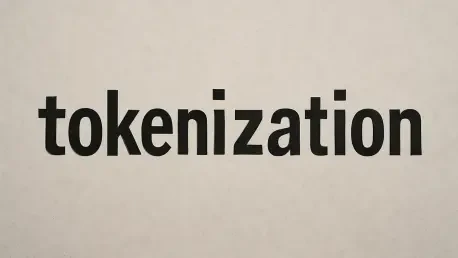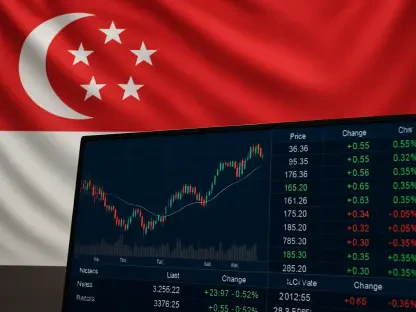Imagine a financial landscape where individuals across Africa, from bustling urban centers to remote rural villages, can invest in global markets with just a few taps on their smartphones, regardless of their economic background. This vision is inching closer to reality with the advent of tokenized equities, a digital innovation that represents ownership in assets like stocks through blockchain technology. The recent introduction of platforms like xStocks by VALR, a leading crypto exchange on the continent, signals a potential shift in how Africans engage with investments. By blending traditional finance with the dynamic world of cryptocurrency, tokenized equities promise to democratize access to wealth-building opportunities. Yet, as this technology gains traction, questions linger about whether it can truly overcome the deep-rooted structural and regulatory challenges that have long hindered financial inclusion in the region. This exploration delves into the transformative possibilities and the critical obstacles that lie ahead.
Unlocking Financial Inclusion Through Digital Innovation
Tokenized equities stand as a beacon of hope for expanding financial access across Africa, where millions remain excluded from traditional investment avenues due to high entry costs and limited infrastructure. Platforms like xStocks, launched by VALR, enable users to gain exposure to major U.S.-listed companies such as Tesla and NVIDIA by trading against cryptocurrencies like Bitcoin. This integration of crypto and conventional markets breaks down barriers, allowing fractional ownership of shares that would otherwise be out of reach for many. The result is a lowered threshold for participation, empowering individuals in underserved communities to build wealth through global opportunities. Beyond affordability, the speed and liquidity offered by blockchain-based transactions further enhance the appeal, making it possible to execute trades almost instantaneously compared to the often sluggish processes of traditional stock exchanges.
The broader implications of this innovation are profound, particularly in a region where economic disparities are stark. By leveraging tokenized equities, financial systems can reach populations that lack access to banks or brokerage accounts, fostering a more inclusive economy. This technology also aligns with the growing digital adoption across the continent, where mobile penetration continues to surge. As more Africans connect to the internet, the potential user base for such platforms expands, creating a fertile ground for investment culture to take root. However, while the promise of democratizing wealth is enticing, success hinges on addressing systemic issues like education and awareness. Many potential investors may not fully understand the risks or mechanics of digital assets, which could limit adoption unless paired with robust outreach and support initiatives to build trust and capability among new users.
Navigating Regulatory and Structural Challenges
Despite the excitement surrounding tokenized equities, the path to widespread adoption in Africa is fraught with regulatory hurdles that could stifle progress if left unaddressed. The absence of a unified framework for digital assets across the continent creates uncertainty for both investors and platforms. While efforts like the African Continental Free Trade Area (AfCFTA) aim to harmonize financial markets, the reality on the ground remains fragmented, with varying rules and enforcement levels from country to country. This inconsistency poses a significant barrier to cross-border trading and scalability of tokenized platforms. Additionally, the lack of clear ownership rights for token holders on certain platforms raises concerns about legal protections, potentially deterring both retail and institutional investors who prioritize security and accountability in their financial dealings.
Another pressing challenge lies in bridging the gap between innovation and trust within the regulatory sphere. Governments and financial authorities must strike a balance between fostering technological advancements and safeguarding public interest, a task complicated by the rapid pace of change in the digital finance sector. Without clear guidelines, platforms risk operating in a gray area, vulnerable to sudden policy shifts or crackdowns that could undermine investor confidence. Moreover, the issue of ownership rights cannot be overlooked, as the absence of guaranteed legal backing for tokenized assets may lead to disputes or losses that erode faith in the system. Addressing these structural challenges requires collaboration between private entities, policymakers, and regional bodies to establish transparent standards that protect users while encouraging growth in this nascent market.
Confronting Cybersecurity Risks in a Digital Era
As tokenized equities rely heavily on digital infrastructure, the specter of cybersecurity threats looms large over their adoption in Africa. Blockchain technology, while inherently secure in many ways, is not immune to hacks, fraud, or system failures that can compromise investor funds and data. The digital nature of these assets makes them prime targets for cybercriminals, especially in regions where technological defenses may not yet be robust. For tokenized equities to gain traction, platforms must prioritize the development of scalable, secure solutions that can withstand sophisticated attacks. Without such measures, the fear of financial loss due to breaches could deter potential users, slowing the momentum of this promising innovation in the financial sector.
Building a resilient cybersecurity framework is not just a technical necessity but also a cornerstone of trust in digital finance. Investors need assurance that their assets are protected against vulnerabilities, which demands significant investment in cutting-edge security protocols and continuous monitoring. Furthermore, the responsibility extends beyond platform operators to include educating users about safe practices, such as securing private keys and recognizing phishing attempts. In a continent where digital literacy varies widely, this educational component is crucial to prevent exploitation. The challenge lies in balancing accessibility with security, ensuring that protective measures do not create additional barriers for less tech-savvy individuals. Only through a comprehensive approach can tokenized equities establish themselves as a reliable and safe option for African investors.
Shaping a Secure Path Forward
Reflecting on the journey of tokenized equities in Africa, it becomes evident that their emergence marks a pivotal moment in redefining financial access. The launch of initiatives like xStocks by VALR showcases how blending cryptocurrency with traditional markets can open doors for millions previously excluded from global investment opportunities. Yet, the road is not without obstacles, as regulatory ambiguities, ownership uncertainties, and cybersecurity vulnerabilities pose significant risks to sustained growth. Looking ahead, the focus must shift toward actionable solutions that address these challenges head-on. Establishing a cohesive regulatory framework across the continent, ensuring legal protections for token holders, and investing in robust digital security are critical steps to build lasting confidence. Collaboration between governments, private sectors, and regional organizations will be essential to create an environment where innovation thrives without compromising safety. As these efforts unfold, the balance between embracing opportunity and mitigating risk will define the lasting impact of tokenized equities on Africa’s financial landscape.









